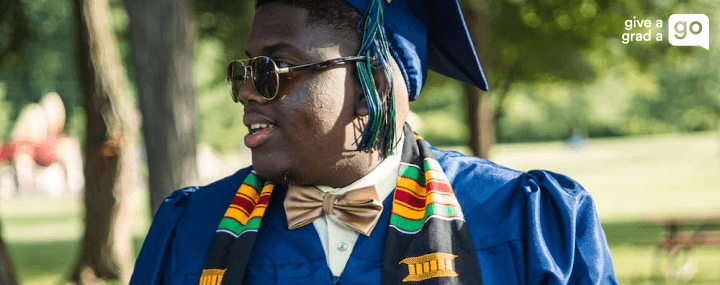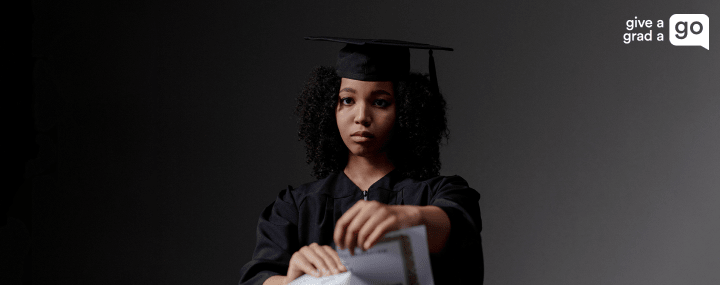If you studied a humanities subject at university, chances are you’ve been asked the age-old question “so, what are you going to do with your degree?”
Discussions about the practical value of humanities degrees have been ongoing for years – and as there has been a clear push for the study of STEM degrees at university, finding information on what to do with your humanities degree when you leave has become more difficult.
While they don’t always lead to one clear career path, humanities degrees can offer great opportunities because they teach a range of transferrable skills that will be highly valued in lots of different graduate jobs.
Humanities courses invariably involve plenty of essay writing, presentations, and undertaking thorough research – using skills like communication, teamwork and analysis.
All of these skills will be attractive to employers across the board – making you a great candidate for a huge variety of roles.
From looking at our own database, we know that by far the most common job for humanities graduates is in account management/client services, followed by sales/business development roles.
But there are a number of more unconventional graduate jobs that you can do with your humanities degree.
So, what can I do with my humanities degree?

Researcher
Throughout your humanities course, you’ll have undertaken thorough qualitative research, using both online and physical material.
Once you’ve conducted this research, you’ll have evaluated the material and presented your ideas in either a written or verbal format – demonstrating the same kinds of skills that are required for graduate research jobs.
The great thing about working in research is that you can work in many different sectors, like medical, legal or political – pretty much any industry you can think of!
Broker
Though it may seem an unusual choice for a humanities graduate, many of the skills required to work as a stockbroker are the kinds of skills that are learnt during a humanities degree.
The role involves researching financial markets, reporting and pitching to clients, and communicating with others – all skills you’ll have demonstrated throughout your course, in writing coursework, taking part in group projects, and putting together coherent and informative presentations.
Copywriter
A copywriter produces written content designed to engage an audience.
Naturally, copywriters need to be creative, have great attention to detail and a way with words – all skills that will have been honed by essay writing throughout university.
Whether they work freelance or in a 9-5 employed position, copywriters tend to have a heavy workload and will always be working to tight deadlines – much like working towards several different deadlines in your final year.
Operations
A graduate job in operations is a broad role which includes interacting with different team members and across a number of elements of the business, and often being responsible for training, supervising and tracking performance.
A job in operations requires someone who is able to keep many different plates spinning at once – so a humanities graduate who has organised their time to meet deadlines and juggled several tasks during their degree would be an excellent fit.
Digital Marketing
A digital marketer works on an organisation’s communication strategy, on channels which can include the web, social media and PPC campaigns.
They may be required to create engaging content, produce email marketing campaigns, or report on the success of these campaigns – and as these responsibilities will require someone with great communication skills and a creative flair, they’d be perfect for someone with a humanities degree.
Check out our blog with some more information about graduate jobs in digital marketing.
Law
A job in the legal sector requires critical thinking, exceptional communication skills, and the ability to analyse, argue and persuade – all of which are skills that would be developed on a humanities course.
By taking a law conversion course (GDL), you’ll be able to enter the legal profession in a year, developing the skills you’d have learnt during your humanities course.
Journalist
A journalist researches and writes stories for the press – on anything from news and sports to arts and culture.
This might include interviewing people (requiring great communication skills), producing well-written copy (demanding exceptional writing skills) and working to deadlines (calling for good organisational skills) – so would be a great fit for someone with a humanities degree.
Human Resources
The aim of human resources is to ensure that employees are happy, organised and focused – something that in larger companies, can require a lot of coordination and planning.
It’s essential for someone working in HR to be super organised, highly focused, and have great interpersonal skills, all of which will have been demonstrated during your studies.
Take a look at some different career options for HR graduate jobs.
Although humanities degrees don’t tend to offer as clear a career path as scientific subjects, they teach highly transferrable skills that can be used in a number of different graduate jobs, and across a range of very different industries.
Find more careers advice for post graduates on our blog – or check out the latest graduate schemes and jobs on our website.






